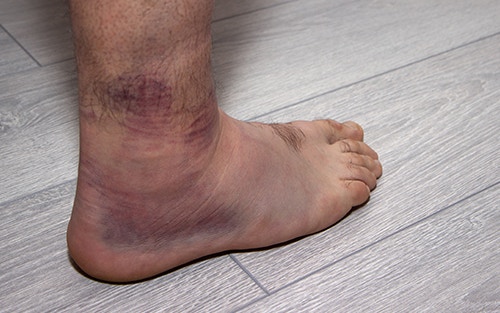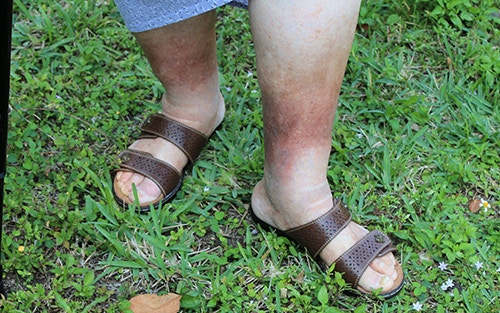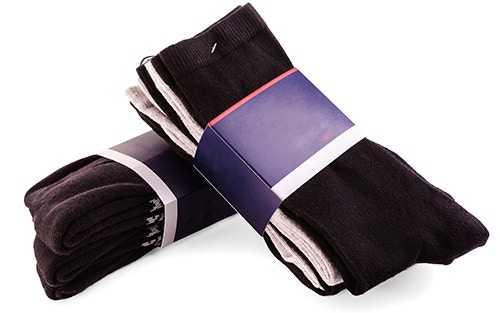Avoid developing a life-threatening condition when your ankles and lower legs swell up. Edema in your lower legs and ankles may indicate a series of potential health risks.

yourfootpalace.com gathered the following information about what causes your lower legs and ankles to swell, which treatments may work best, and when to seek medical help.
What Are Cankles
Cankles is a colloquial term (not a medical term) for the part of the leg where the ankle meets the calf without any defining contour of the ankle. It may be due to a large ankle that you are born with or swelling of the ankle. It is quite normal to have big ankles from birth, and the condition may very well be hereditary with some people.
This form of edema is not always a sign of disease. You may develop feet and ankle swelling after standing for many hours, which is not necessarily threatening. However, if you have developed swelling of your ankles and lower legs over multiple days, it is a cause for legitimate concern.
What Conditions May Cause Cankles
The following are ten reasons you may develop this type of swelling:
Pregnancy
Foot and ankle edema is a common and often recurring symptom during pregnancy. However, if you suffer from irregularly high blood pressure or you are experiencing lightheadedness, headaches, and/or shortness of breath, you may have a severe condition known as preeclampsia. Preeclampsia leads to highly elevated blood pressures that can harm your unborn child.
Congestive Heart Failure

In congestive heart failure, there is a severe weakening of the heart that causes it to circulate blood less efficiently. This impaired circulation causes fluid buildup in the blood vessels of the leg. In this case, fluids leak from the blood vessels resulting in cankles. This is a severe health condition. If you suffer from shortness of breath or find yourself in a state of confusion as well, call 911 immediately.
Kidney Disease
Kidneys filter the blood and remove waste materials from your body as urine. When you have a kidney disease or ailment that hampers its function, waste materials build up in the blood vessels. This can quickly result in the swelling of the whole body beginning from the ankles, feet, arms, and face.
Liver Disease
A disease like liver cirrhosis causes a severe decrease in body protein (albumin) levels. Without enough albumin, the fluid leaks out of the blood vessels and causes swelling in the legs, arms, and face.
Varicose Veins
You may develop cankles due to a condition like varicose veins, where the valves of the blood vessels become weak, allowing the blood to pool in the legs. This pooling of blood may lead to cankles.
Lymphedema
Irregularities in the lymphatic system may lead to the improper drainage of lymph from the body. This can appear as swelling anywhere in the body, including your arms and legs, and continuing to the feet and ankles.
Lipedema
Lipedema is the enlargement of both legs due to the depositing of fat beneath the skin. Skin bruises easily, and this swelling can be severely painful.
Deep Vein Thrombosis (DVT)

Deep vein thrombosis results from the obstruction of the deep veins of one or both legs with a single or multiple blood clots. This condition results in swelling and reddening of the legs. If left untreated, it can lead to a pulmonary embolism with the lodging of the blood clot in the lungs.
Air travel
Sitting in flights for an extended time can cause a temporary swelling in the feet and legs. However, if the swelling does not recede once you return to normal activities, it may indicate a health condition, like DVT or a heart condition.
Medications
Some OTC or prescription medications can cause swelling of the legs, including the feet and ankles. These include:
- Hormone replacement therapy
- Estrogen-containing oral contraceptives
- Medications that treat high blood pressure
- Medications that treat diabetes
- NSAIDs
- Steroids
- Testosterone
- Antidepressants
Note: Consult your primary care physician before adding or subtracting any medication from your prescribed or recommended medicines.
Treatment for Cankles
The following may help you control the swelling that leads to cankles. Your doctor may prescribe one more of these to help you mitigate the swelling and discomfort caused by cankles.
- Weight loss
- Treat yourself to regular spa days
- Use compression socks
- Elevate your legs above heart level
- Keep your legs in motion when standing for long periods

When these measures fail to relieve your edema, contact your doctor to rule out any other, potentially more serious conditions.
Cankles and Their Meaning
In this article, you discovered several reasons that can cause or contribute to the swelling of your lower extremities, the grave medical conditions they may indicate, and some treatments that may help relieve some of the symptoms.
Acting swiftly to identify and minimize the effects of cankles can help you reduce the discomfort and embarrassment of this type of swelling.
Ignoring cankles and their cause can allow other contributing factors to compound and elevate the severity of your condition, potentially resulting in hospitalization or more grave.
Sources:
urmc.rochester.edu/encyclopedia/content.aspx?contenttypeid=85&contentid=p00664
cedars-sinai.org/health-library/diseases-and-conditions/h/heart-failure.html
ft.com/content/cb458c87-2464-4d90-8460-dbdeca5e4f6b
health.harvard.edu/a_to_z/kidney-failure-a-to-z
(706) 521-5290
(678) 963-5958